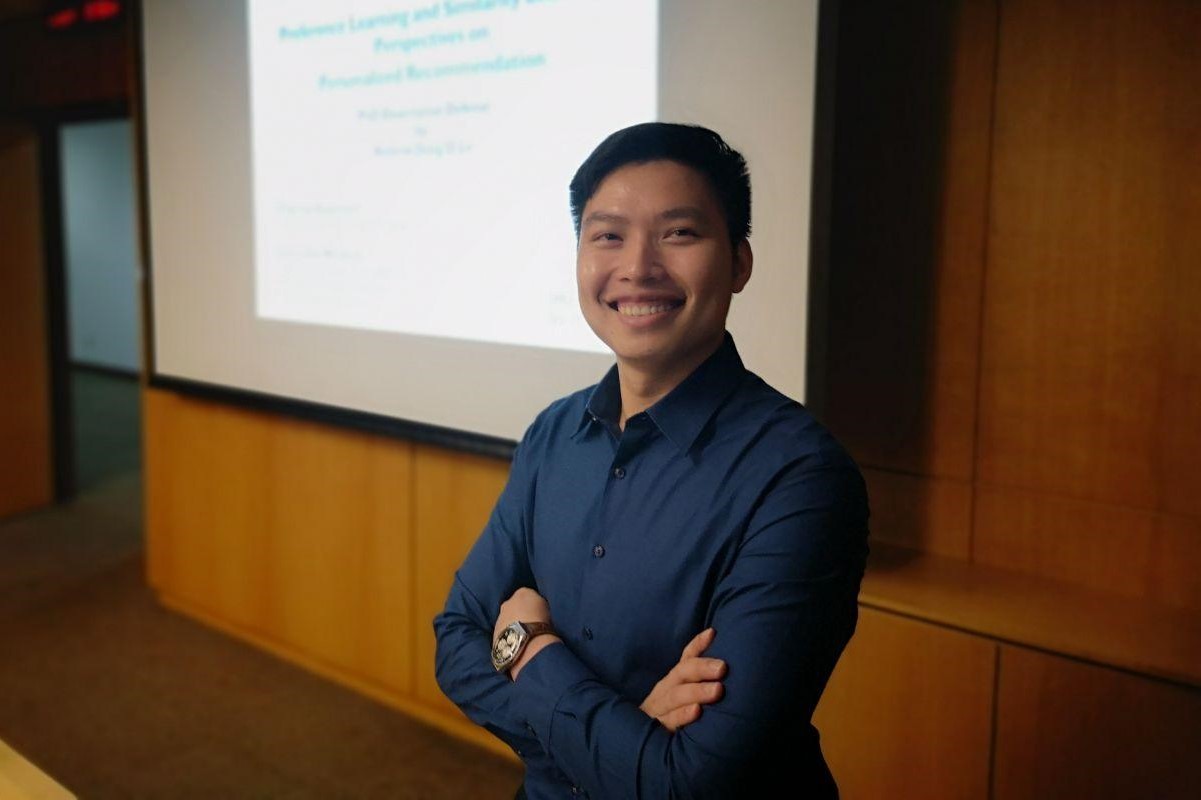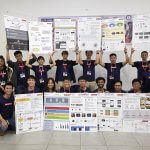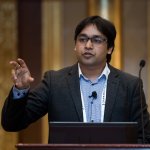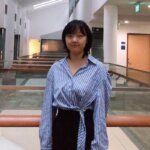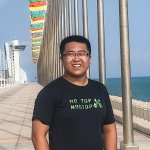By the SMU Postgraduate Research Programmes Team
Andrew Le Duy Dung grew up in rural Vietnam, and only used a computer for the first time when he was in secondary school; and just like that, he was hooked. “I was excited, anxious, and then amazed by the idea that computers could do many tasks that humans could not,” he recalls of this early formative encounter.
It didn’t take long for him to realise that he wanted to help shape this fascinating field. “One of my favourite quotes is from Silicon Valley venture capitalist Marc Andreessen: ‘The spread of computers and the Internet will put jobs in two categories. People who tell computers what to do, and people who are told by computers what to do’,” Andrew shares. “I would, of course, want to be in the first group where I can contribute to the development of computing advancements.”
Andrew thus enrolled in Hanoi University of Science and Technology (HUST), one of Vietnam’s leading institutes for engineering disciplines. After graduating as the valedictorian of the university’s School of Applied Mathematics and Informatics, he pursued his PhD studies at Singapore Management University’s School of Information Systems (SIS).
In 2019, Andrew became part of the pioneer batch of students to graduate from the SIS PhD programme in Computer Science. Since 2016, SIS had been running a PhD in Information Systems programme. However, in 2018, the School re-classified the PhD programme into the two disciplines, Computer Science and Information Systems.
Andrew’s PhD thesis centred on building better personalised recommendation systems, an aspect of digital life that’s familiar to everyone who’s been on the receiving end of suggested content on films, books, clothes and more, generated by content and e-commerce platforms. “As the number of online artifacts grow exponentially, consumers face the issue of choice explosion. Personalised recommendation systems provide solutions to this issue,” Andrew says of his interest in this topic.
Andrew’s research focused on improving the quality and the scalability of such systems through cutting-edge machine learning and data mining techniques. The ultimate goal is to create systems that can respond to individual preferences so specifically that using it would be like “walking into a store, and seeing the shelves start to rearrange themselves, with what you want moved to the front and what you are unlikely to buy sent to the back”, he says.
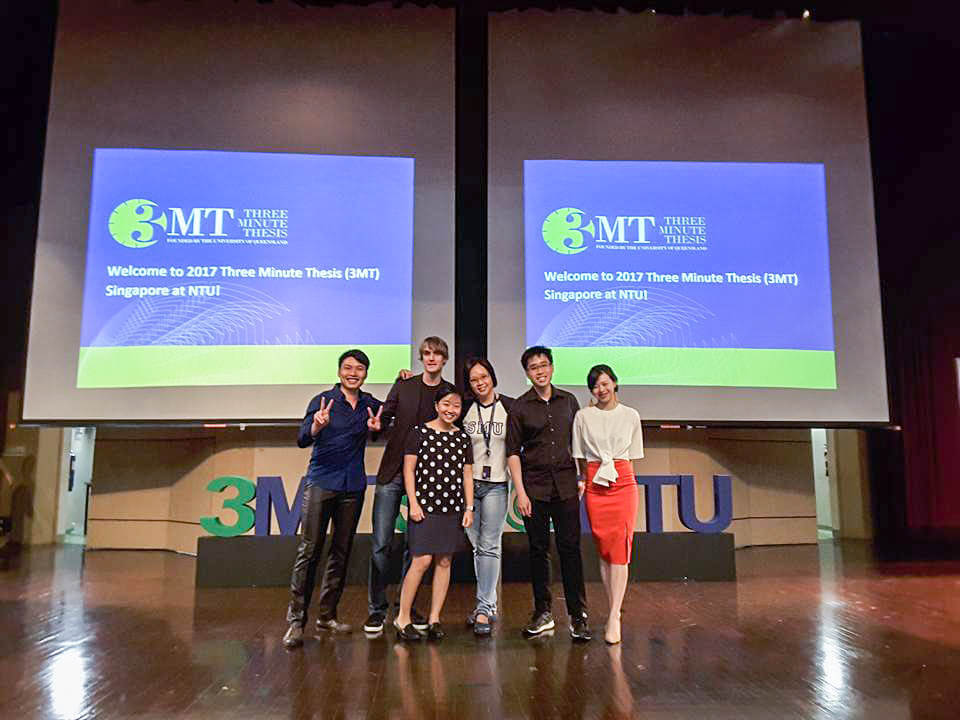
Andrew and fellow SMU PhD students at the 2017 Singapore Three Minute Thesis Competition held at Nanyang Technological University.
It’s a striking image, and Andrew has actually had a lot of practice in translating complex ideas into easily comprehensible forms. During his postgraduate studies at SMU, he took part in the Singapore Three Minute Thesis Competition (3MT) twice where he was tasked with compressing his thesis into three-minute presentations that a general audience could understand.
From that experience, he learnt a valuable lesson: “When you truly understand a research topic, you can describe it to anyone, regardless of their educational background.”
“When you truly understand a research topic, you can describe it to anyone, regardless of their educational background.”
Such competitions marked just one way he engaged actively in student life in Singapore, a place he found surprisingly easy to adapt to. Andrew embraced SMU’s multicultural environment, while also finding a sense of community in Singapore’s vibrant and growing Vietnamese community. The relative abundance of authentic Vietnamese restaurants here also helped this keen cook feel at home.
Most significantly, he realised that the fundamental nature of his PhD studies was quite different from his undergraduate experience. In Hanoi, his university routine had revolved around attending classes, browsing books in the library and working on course projects with classmates. As a PhD student in Singapore, on the other hand, he was trying to create new knowledge.
As such, “there were hardly any textbooks to read to find the answers to all of the questions”, he explains. “As a matter of fact, I spent most of my time in the lab brainstorming ideas, having discussions with my peers, reading papers for references, and setting up experiments to test hypotheses.”
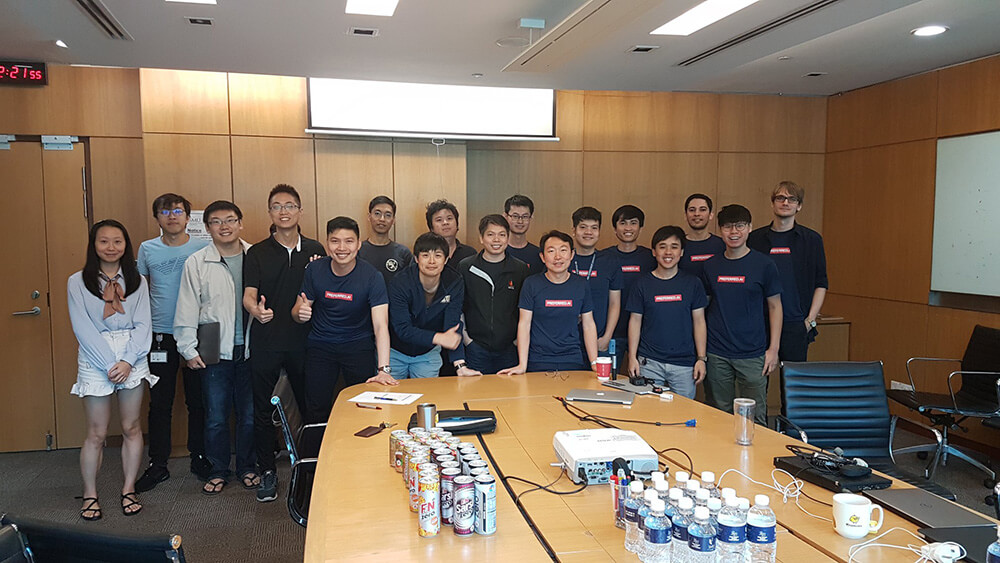
Andrew and his classmates attending a School of Information Systems AI workshop.
Not only engaging in intensive research projects, Andrew also joined several PhD training workshops, where he was able to sharpen his research skills and to network with PhD fellows from other schools. To take a break from computers, he would also go for outdoor runs with teammates from Preferred.AI, a research group supported by the Singapore National Research Foundation.
In 2018 and 2019, his enthusiastic participation in activities such as the SMU PGlympics sport competition and the SIS Research workshop on “AI for Preference Learning: Sentiment, Comparison, and Recommendation” earned him the SMU PhD Student Life Award, which recognises distinctive academic research PhD students who make efforts to engage other students to lead a vibrant student life at SMU.
“Being a PhD student is not only about achieving academic excellence,” he says. “By meeting new people, you can learn from them and collaborate with them. By sharing your ideas, you can get more external feedback and learn how to make your research more impactful. By living vibrantly, you could engage fellow PhD students to create a learning environment where we can all get the best educational experience and be future-ready.”
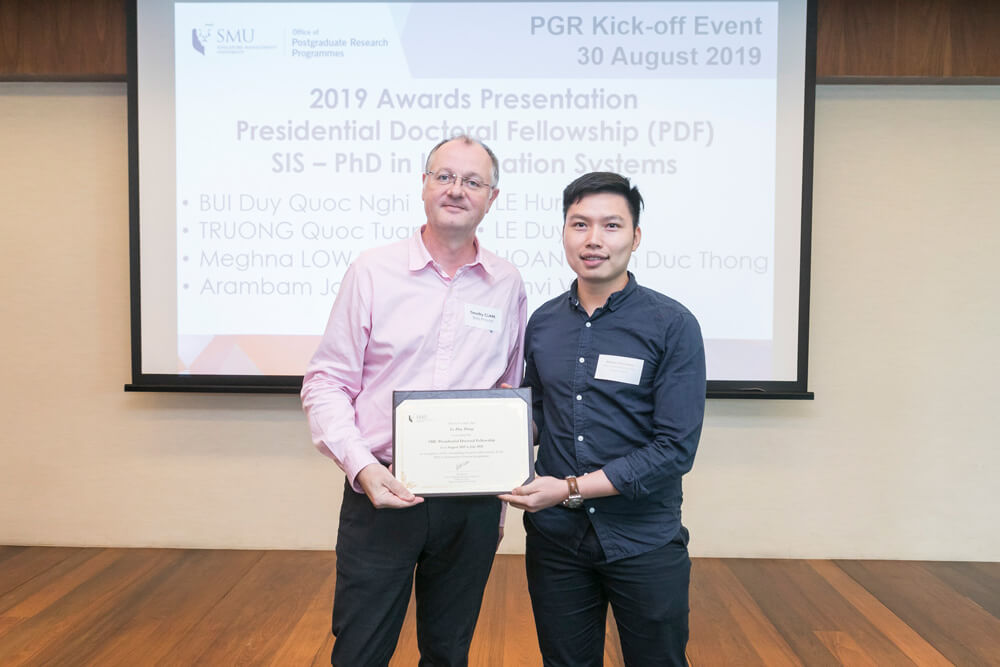
Andrew receiving his SMU Presidential Doctoral Fellowship award in 2019 from SMU Provost Professor Timothy Clark.
Through his PhD journey at SMU, Andrew discovered an ability to balance academic work with a busy student life. He certainly managed to master both aspects and was awarded the prestigious SMU Presidential Doctoral Fellowship in 2019. This award recognises existing PhD students who are outstanding in their studies.
Today, Andrew is a Research Scientist at SMU’s School of Information Systems, where he continues his PhD research in analysing customer behaviour to generate high-quality personalised recommendations. He is also collaborating with Preferred.AI teammates to create open-source tools and frameworks for researchers and companies interested in recommendation systems.
He hopes that the reclassification of SMU’s PhD programme in Computer Science will attract more talented researchers from around the world and further strengthen the university’s research capabilities in computing. He’s pretty pleased that his dreams have come true, and says: “Personally, I am happy that I can address myself as a computer scientist by training.”

